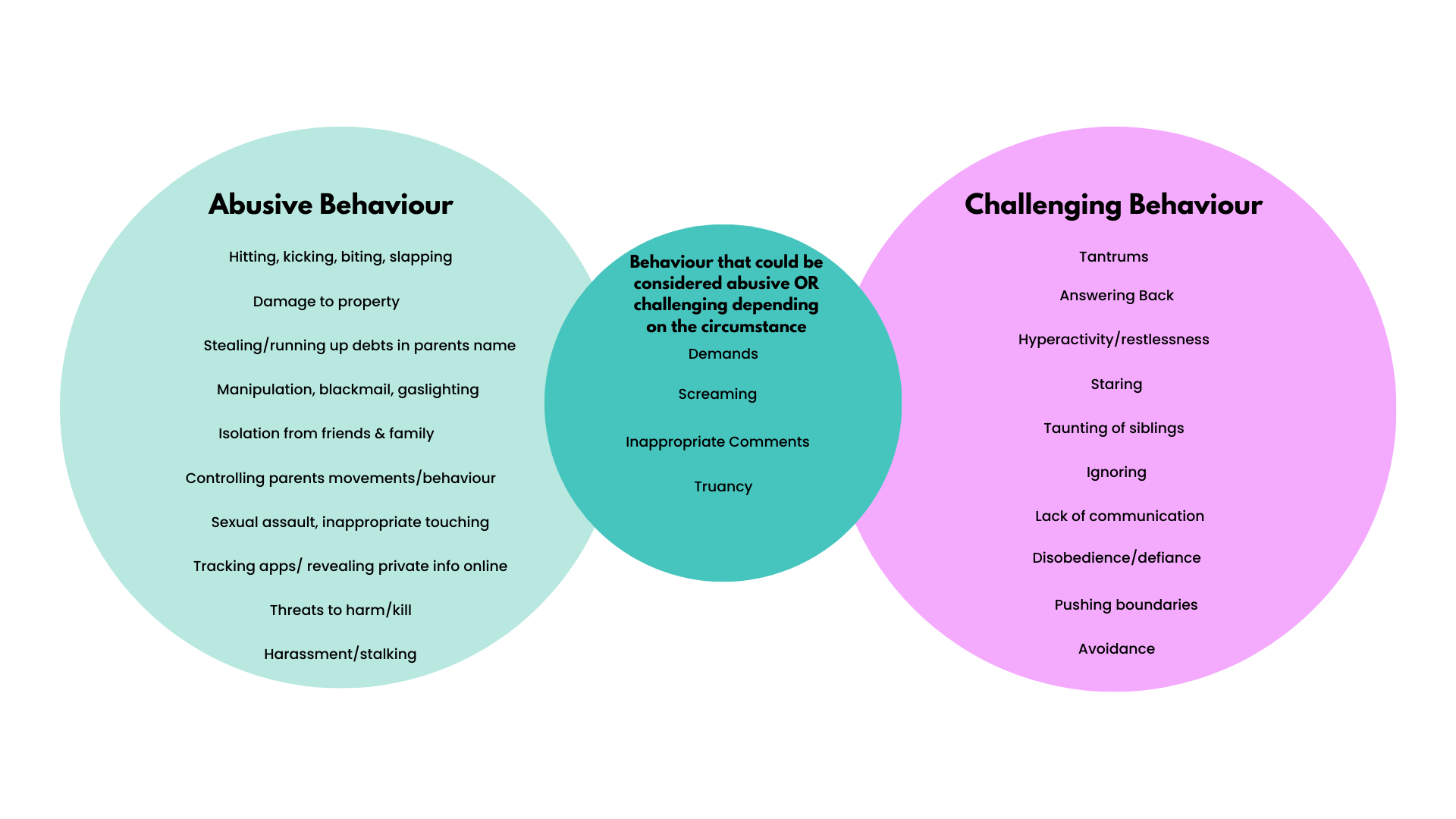CPA or Challenging Behaviour?
CPA or Challenging Behaviour? The differences and similarities

Child to Parent Abuse (CPA) is a form of domestic abuse that unfortunately isn’t always given the attention it needs. Forms of abuse such as intimate partner abuse and parent to child abuse tend to be focused on far more seriously than CPA. This then leads to misconceptions and a general lack of understanding regarding what CPA is. It is important to note that knowledge of this particular type of abuse is in its infancy. This makes it difficult for many people to pinpoint the difference between CPA and the typical challenging behaviours that most children are expected to display at some point in time. It is also important to note that there are various issues that a child could be going through that add further complexity when it comes to being a parent.
CPA comes in an array of different forms; verbal, physical, emotional, financial, coercion & control, digital and sexual. When offering support to parents and caregivers, we look at a variety of factors, such as the frequency and intensity of incidents.
97% of the parents we support tell us that they have had to change their routine and lifestyles to reduce the risk of abusive behaviour occurring. Parents feel like they are walking on eggshells around their child, living in constant fear of an incident of abuse occurring. CPA leads to parents feeling isolated from loved ones.
Of the working parents we support, 74% have been forced to either leave work or reduce their hours. Parents can be subjected to daily or weekly physical attacks, intimidation and verbal abuse. This often leads to multiple calls for help to both the police and professionals who work within the family sector.
We understand that a child’s challenging behaviour can be very difficult and often unpleasant for a parent to deal with. However, it is pivotal that we don’t confuse CPA with challenging behaviour that is often common in children and adolescents.
If you are a parent or caregiver who is struggling as a result of your child’s challenging behaviour, there are a variety of services out there who can provide you with the necessary support. We do all that we can to help parents, but only ones who are strictly experiencing abuse from their child, not challenging behaviour.
Below is a diagram with some examples of abusive behaviour, challenging behaviour and behaviour that could be abusive OR challenging depending on the particular circumstance. It is important to note that this diagram isn’t exhaustive, this is a very light touch overview of the difference between what we consider challenging and abusive. We hope that this has provided you with an overview of the key differences between the two types of behaviour, and encourage you to get in touch with us if there is any further information you require.






